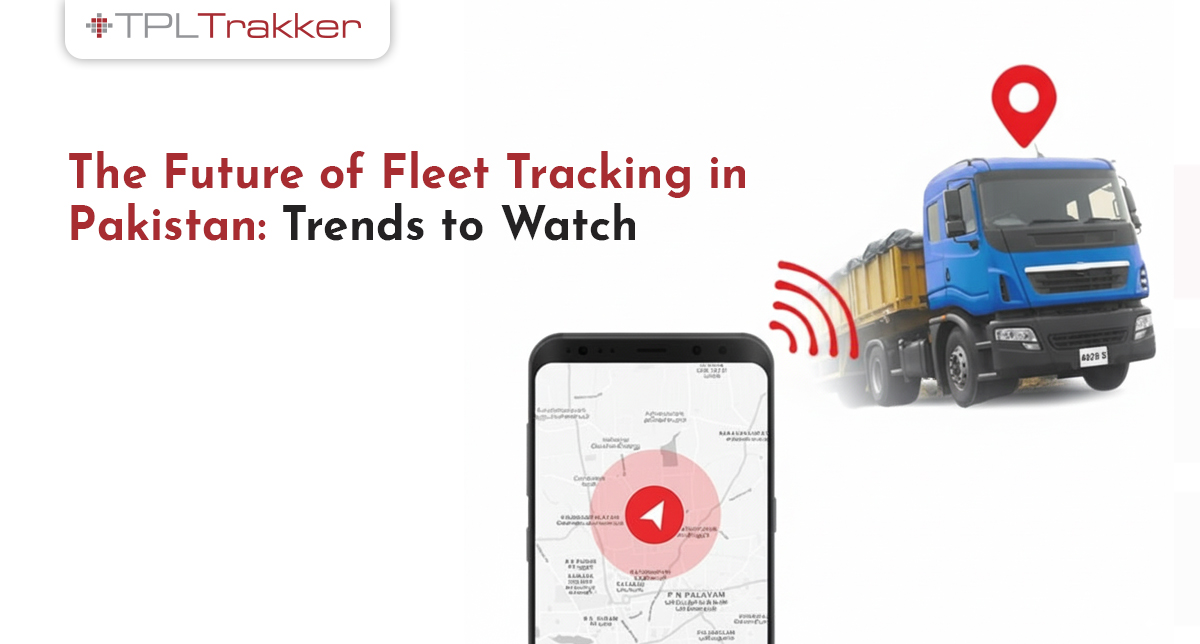The Future of Fleet Tracking in Pakistan: Trends to Watch
Pakistan’s logistics scene is expanding quickly, and companies are depending on smart fleet tracking to save money and work faster. Decades ago, tracking vehicles meant just knowing their location. Now, technologies like GPS, IoT devices, AI, and telematics weave together to give businesses real-time stats, safety reports, and smart insights in one digital framework.
Looking toward 2025, here are the top trends in fleet tracking that every business in Pakistan should keep an eye on.
AI-Powered Fleet Analytics
AI is changing the game by doing more than collecting data; it’s understanding it. The software reviews driving habits, predicts machine problems, and advises the next step—often before issues arise.
- Predictive maintenance: Algorithms notice unusual load on an engine and send alerts before a part fails.
- Driver behavior: Instances of hard braking, speeding, or aggressive corners are flagged to the driver and manager right away.
- Accident reduction: Training based on predicted risks helps drivers act safer, cutting crashes.
For businesses with big fleet sizes in Pakistan, integrating AI analytics is no longer optional; it’s essential for savings and smooth operations.
2. IoT Integration for Smarter Fleets
With the Internet of Things (IoT) at its core, every truck, sensor, and handheld device syncs into one smart network. This 360° view of fleet health means managers see engine alerts, weather changes, and driver schedules—all on one screen.
Here’s how IoT tracking is making waves in Pakistan:
- Fuel Monitoring: Nanotech sensors track every drop, shutting off pumps at the first sign of a leak.
- Tire Pressure Monitoring: Pressure alerts in the app means fewer roadside blowouts and safer streets.
- Cargo Temperature Sensors: Small tags for blood, vaccines, or frozen yogurt assure real-time alerts before goods spoil.
Making faster, smarter decisions shrinks operational risks and keeps goods on time.
3. Telematics for Cost Efficiency
In Pakistan, fuel is still the largest pinch on budgets. Telematics gives fleet managers the edge to save:
- Route Optimization: GPS and traffic sensors tell drivers shortcuts before a jam builds, saving liters and time.
- Idling Alerts: Quiet alerts tell drivers to switch off before costly minutes tick by at the gate.
- Mileage Tracking: Automated alerts remind the workshop to change oil, keeping engines fit and pumps efficient.
From ride-hailing to food delivery, telematics is the fuel-saving hero of the road.
4. Dashcams and Driver Monitoring
When it comes to fleet safety, advanced dashboard cameras are changing the game. With AI at the wheel, these cameras do more than record—they predict and prevent risk.
- In-Cab Alerts: Cameras spot drowsiness, phone use, or tailgating and nudge the driver before a split-second mistake.
- Accident Evidence: High-def footage backs up drivers during false claims, keeping insurance costs in check.
- Improved Accountability: Drivers are More Cautious When Monitored.
By 2025, companies in Pakistan will log cameras in vehicles not only for security, but also for coaching and rule-following.
5. Electric Vehicle (EV) Fleet Tracking
As Pakistan embraces electric driving, smart tracking is evolving to fit.
- Battery monitoring:Managers can see charge levels and plot trips around charging spots.
- Energy efficiency reports:Internet-connected gadgets compare power used to distance traveled.
- Reduced operating costs:EVs joined with smart tracking mean lower bills for companies over time.
Firms in logistics and delivery that add EV tracking now will build a winning edge.
6. Cloud-Based Fleet Management
Cloud tech is turning fleet tracking into a flexible, live, and expandable tool.
- Anytime, anywhere access: Managers can check vehicles from apps or online dashboards.
- Data security: Cloud systems guard important fleet details.
- Collaboration made easy: Drivers, dispatchers, and managers see the same live updates.
Cloud-based tracking keeps firms linked and informed no matter where their vehicles roam in Pakistan.
7. Integration with Smart Cities
As Pakistan rolls out smart city projects, fleet tracking will plug into a larger, high-tech network. Check out how it will fit in:
- Smart traffic signals that link with fleet data to ease traffic jams.
- Digital toll booths that automatically suggest the best routes.
- Vehicle-to-infrastructure (V2I) tech that warns drivers of road hazards in real time.
These systems will not just help large fleets; everyday commuters will also notice faster, safer travel across major cities.
8. Compliance and Regulatory Monitoring
The booming e-commerce scene will likely prompt tighter transport laws. Fleet tracking solutions can help businesses:
- Stick to driver-hour regulations.
- Follow road safety rules.
- Keep cargo data for inspections and reporting.
Staying compliant lowers fines and earns respect from customers and regulators alike, strengthening brand reputation.
Conclusion
The road ahead for fleet tracking in Pakistan is smart, data-driven, and tightly connected. Companies that adopt AI, IoT, and telematics will trim expenses while enhancing safety, efficiency, and customer happiness.
With innovators like TPL Trakker offering smart GPS tracking, real-time telematics, and IoT, Pakistani firms can leverage top-tier tech custom-designed for local markets. Embracing these upgrades in 2025 will help businesses outshine rivals, curb risks, and boost profits.

